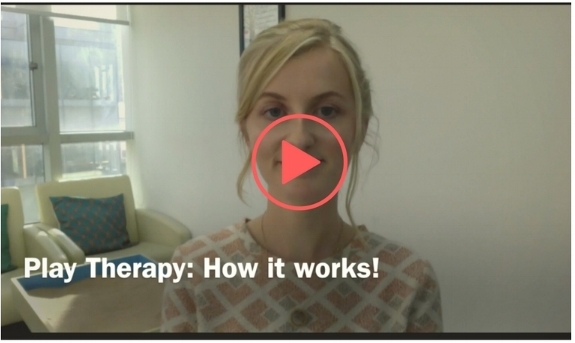From my previous post we know what play therapy is and that is an effective form of psychotherapy. The next obvious question that pops up into people’s minds is how?
Although I have seen lots of wizards, unicorns and dragons (even dressed as them at times) in the play room, play therapy isn’t just “magic”. The experience for children, parents, teachers alike can be magical but there are logical explanations for how play therapy works. Here are just a few!
1. Play Therapy affects the wiring of the brain
From even when we are infants, our environment is playing a role in wiring our brains. When we experience two things together at the same time e.g. the colour red + the feeling of excitement, the neurons in our brain for “red" and “excitement" wire together. We can have multiple connections to the colour red but as time goes on our brain needs to be more efficient so it undergoes a process of pruning. The connections that occur the most often become stronger while the less frequent connections get pruned away.
So for a child coming to play therapy, they might have had a number of negative experiences that made friendships feel unsafe. Their neural pathway between simple things such as being "looked at" and the feeling of unsafe will be strong. This might look like hostility to their peers, aggression or even anxiety and withdrawal.
So when they come to play therapy they get to explore new experiences of friendship using stories, Art, figurines and the therapeutic relationship so that they create new experiences and new neural pathways in the brain. With regular positive experiences of friendship in the play room they are strengthening their neural pathways between friendship and feeling good. This means when someone looks at them in school they have a better chance of responding appropriately rather than interpreting the look to mean that they are unsafe and react.
2. Play Therapy works on an hormonal level
Play can relieve stress and help to lower the stress hormone cortisol in the body. Play also boosts the feel good hormone Oxytocin especially as part of a warm therapeutic relationship with the therapist. This has an effect on stress related illnesses and enhances sleep which has a number of knock on positive effects such as improved mental focus, better immune system and mood.
3. Play Therapy works through the relationship
A registered play therapist is fully trained at holding a safe space for the child and acting as “a container” for them to offload their experiences, their worries, and all facets of themselves. This can be extremely difficult to do for family members as they are often too close to the child not to react and get their own buttons pushed!
In play therapy the child gets to explore their outer edges. What it would be like to be bossy? What it would be like to be “a winner” all the while being accepted as they are without praise or judgment. The experience of being held in a positive light even in your darkest moments, even during waves of rage, whilst being kept safe, is life changing. It gives a unique opportunity for the child to tap into their own sense of “self” and their own moral compass. It forces them to find their own inner strength and resources which they can then access during difficult times. Resilience begins with acceptance.
One of the key principles play therapists’ follow is “accept the child as is”. This is reflected in the method of how we try to understand and communicate with children. We reach out to them in their language, play.
I hope this gives some more insight for you on how play therapy works. Did any of the ways surprise you? Let me know in the comments below. Or ask me a question! I read every single comment and truly appreciate your engagement 😃




